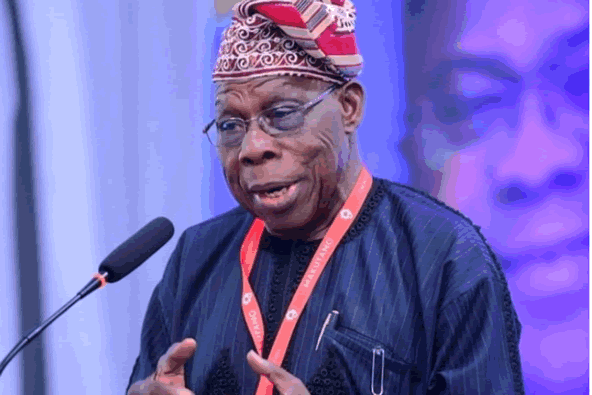Former President Olusegun Obasanjo has voiced criticism of President Bola Tinubu’s policy implementation, despite acknowledging their importance. His remarks came during a colloquium titled “Nigeria’s Development: Navigating the Way Out of the Current Economic Crisis and Insecurity,” held at the Paul Aje Colloquium (PAC) in Abuja. The event coincided with celebrations marking Tinubu’s one-year anniversary in office.
In a statement issued by his media adviser, Kehinde Akinyemi, Obasanjo identified three key administrative decisions—removal of gasoline subsidies, exchange rate management, and handling the military takeover in Niger Republic—as crucial but poorly executed.
“The present Administration has not found the right way to handle the economy to engender confidence and trust for investors to start trooping in,” Obasanjo remarked. He elaborated, “The government has taken three decisions, two of which are necessary but wrongly implemented, leading to the impoverishment of the economy and Nigerians. These are the removal of subsidies and closing the gap between black market and official exchange rates. The third is dealing with the military coup in Niger Republic.”
Obasanjo stressed the need for increased production and productivity, emphasizing that trust and belief in government leadership are essential for economic progress. “Economy does not obey orders, not even military orders. If we get it right, in two years, we will begin to see the light beyond the tunnel,” he stated. He called for a shift from transactional to transformational leadership to inspire investor confidence.
He cited the example of Total Energy investing $6 billion in Angola rather than Nigeria, highlighting the current administration’s failure to attract and retain investors. “If the existing investors are disinvesting and going out of our country, how do we persuade new investors to rush in? We need to change from transactional leadership in government to transformational and genuine servant leadership,” he argued.
Obasanjo urged the government to ensure consistency and continuity in economic policies to achieve stability and predictability. “Tinkering with the exchange rate is not the answer. The answer is consistency and continuity in policy to ensure stability and predictability. There must be honesty and transparency in government dealings and contracts,” he asserted.
He concluded by emphasizing the need for honesty and transparency in government actions to foster production and productivity. “When the government is seen as pursuing the right policy, the private sector will go for production and productivity,” he concluded.


